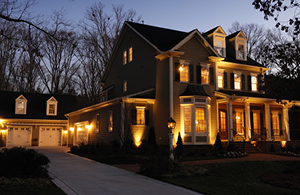What backup generator is best for you and your home?
 There’s no denying that the best way to keep life going on as normal during a power outage caused by storms at any time of year is having a backup generator in your home. It keeps critical systems running, saves money by keeping food from being spoiled longer and much more. But when it comes to backup generators, you have options.
There’s no denying that the best way to keep life going on as normal during a power outage caused by storms at any time of year is having a backup generator in your home. It keeps critical systems running, saves money by keeping food from being spoiled longer and much more. But when it comes to backup generators, you have options.
So, how do you know which backup generator option is best for you?
You need to consider the following items before making any kind of generator purchase:
- Where you live, your specific location
- Home size
- All the appliances and devices that you need to provide with backup power
Once you figure out the best solutions to these considerations, you have two backup generator options to choose from:
- Standby (or whole house generator)
- Portable generator
Both these options will provide the power you need but with some important differences that you need to understand.
Standby generators
- Permanently installed outside your home.
- Installation should be handled by professionals as it involves permits, building codes and professional electrical, plumbing and potentially gas line work if your power source is natural gas.
- Usually runs on propane or natural gas.
- If power goes out, the generator turns on automatically, supplying power in moments.
- Can be expensive but they are a prudent investment for homeowners living in hurricane or flood-prone areas.
- Powers essential systems like the refrigerator, cooking appliances, furnace, entertainment and medical devices, and necessary business equipment to prevent having to throw out hundreds of dollars in spoiled food, prevent frozen pipes from bursting that cost potentially thousands of dollars in damage, keeps sump pumps running and prevents flooding.
Portable generators
- A smart, back-up solution if you only tend to lose power on rare occasions.
- Runs on gasoline, diesel, natural gas or propane and can be used to supply power safely to a select number of items in your home.
- Should not be used without having a properly installed generator transfer switch.
- Costs a lot less than a standby generator.
- Can be easily moved to wherever you need it, at home, camping, etc.
- Safety concerns include, never plugging it directly into the wall outlet (known as backfeeding). This sends power beyond the house, which could kill or injure utility workers and others served by the same utility transformer.
- Must be kept outside in a dry area, never inside the home or any enclosed or partially enclosed spaces such as your basement, garage, or crawl space because of the carbon monoxide (CO) emitted while the generator is running, electrocution and fire risks.
Whether you have a portable generator or a whole-home generator, these systems can help keep your home up and running in the event of a power outage, allowing you to power your most important home appliances like your boiler or furnace, air conditioner, refrigerator, and/or all your lights and computers. John Ray’s technicians can not only provide generator repair but can maintain and install your systems as well.
If you have any further questions about which generator is best for you and your home, our team of professionals can handle all your backup generator purchasing, installation and service needs. Give us a call today!


